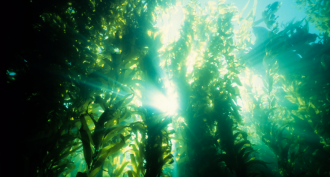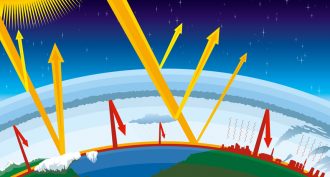Earth
-

-

-

-

-
 Environment
EnvironmentGulf oil finds many paths
Questions, and lots of oil, remain months after Gulf disaster.
-

-
 Life
LifeThe algae invasion
One of the world's simplest organisms is also one of the hardest to classify.
-
 Climate
ClimateExplainer: Global warming and the greenhouse effect
Like the glass-walled greenhouses used to grow out-of-season plants, certain gases in Earth’s atmosphere trap the sun’s energy near the planet’s surface. This keeps Earth warm enough for life to flourish.
-
 Environment
EnvironmentIndoor ozone stopper
Oils from human skin fight off this harmful chemical, but at a cost.
-

-
 Earth
EarthEarthquake shortens the day
The recent South American quake sent Earth spinning just a big faster.
-
